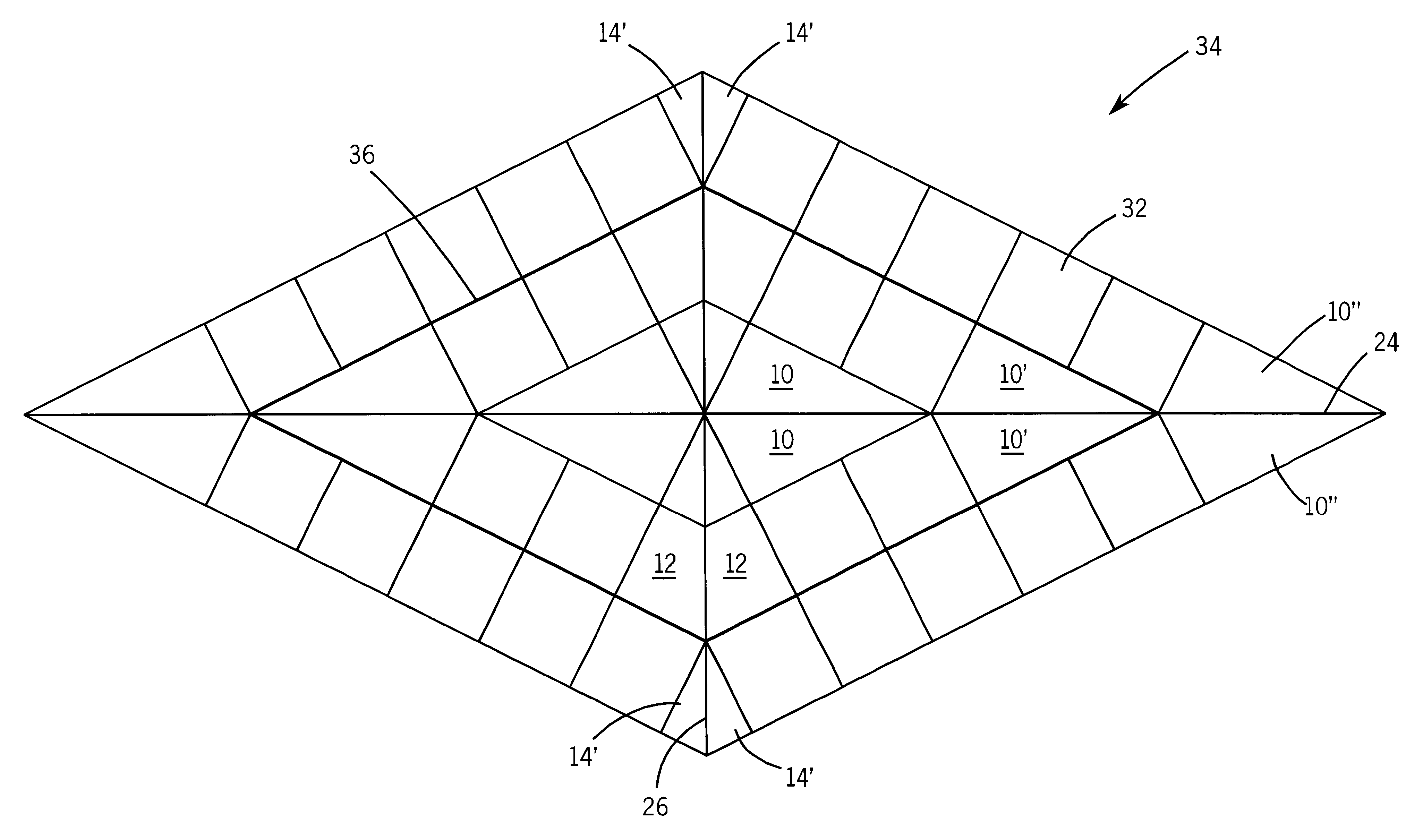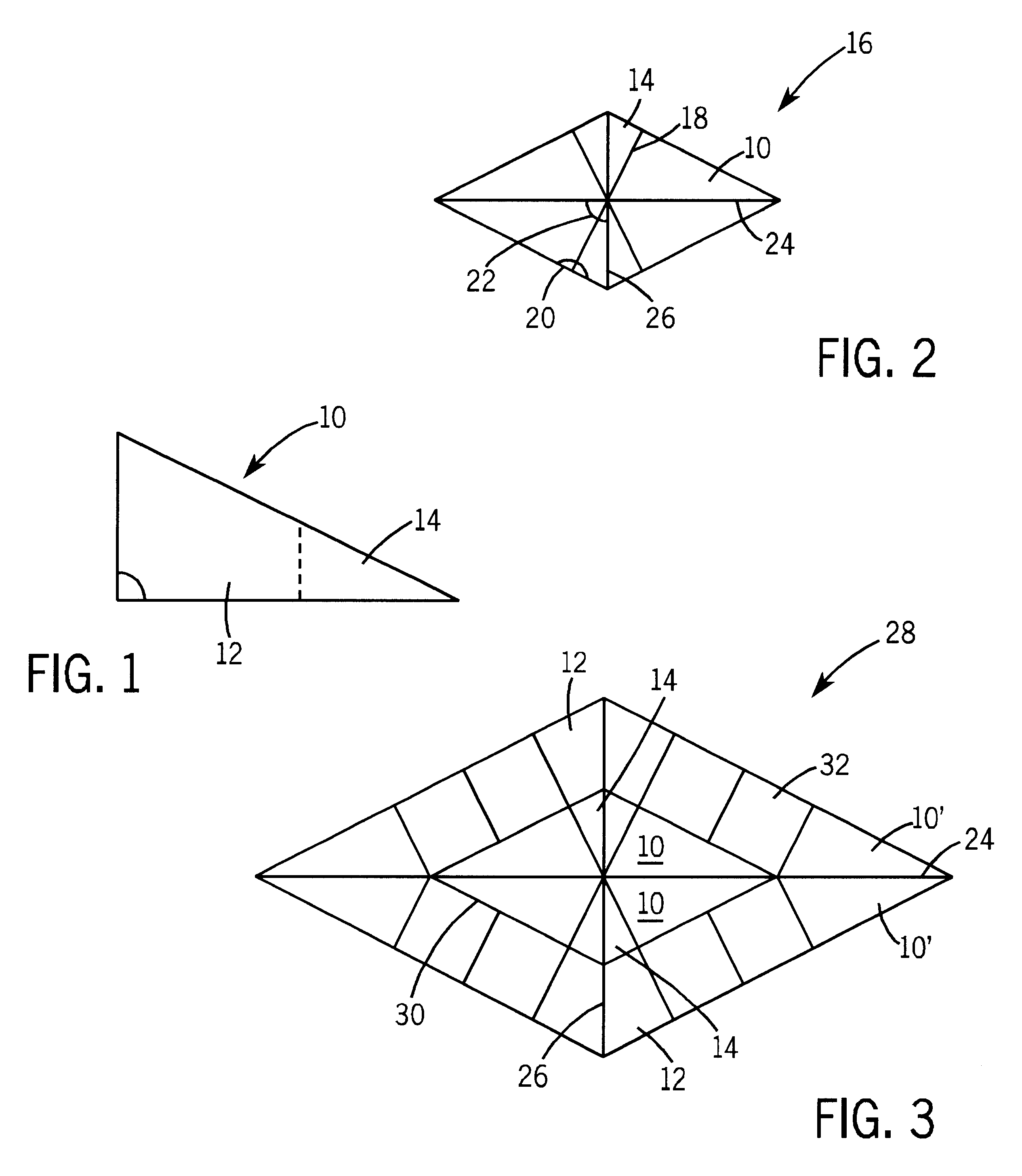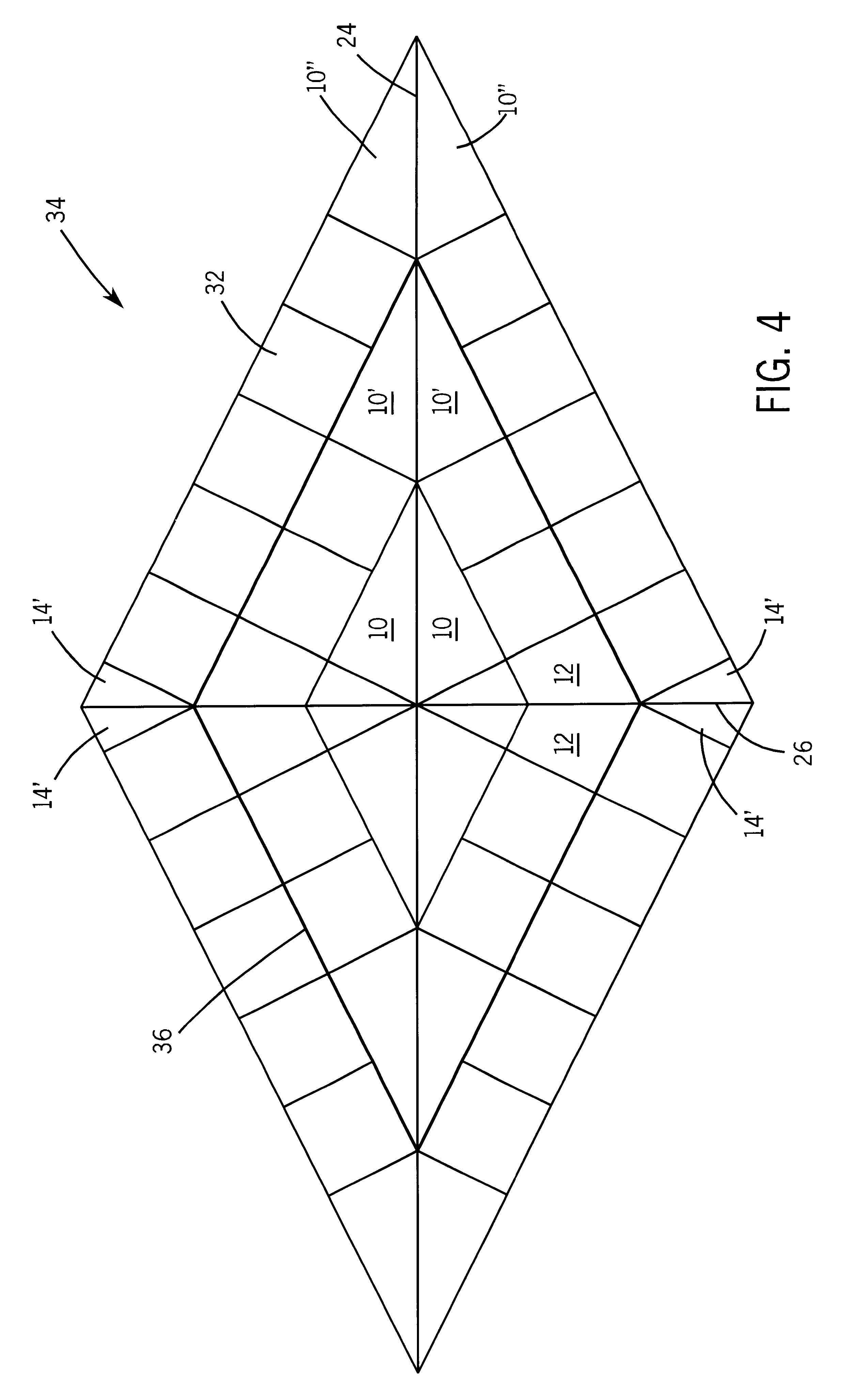Modular roofing system and assembly
- Summary
- Abstract
- Description
- Claims
- Application Information
AI Technical Summary
Benefits of technology
Problems solved by technology
Method used
Image
Examples
example 1
As a demonstration of the improved drainage capabilities available through this invention, a tapered roof configuration was simulated by placing one elemental and wedge component pair, sloped at one-quarter inch per foot on a wood surface sloped at one-eighth inch per foot. Per good roofing practice, a zero to one-half inch tapered edge piece was installed next to the elemental / wedge component pair, to provide a 22.5.degree. angle and a minimum resultant slope of one-sixteenth inch per foot in the resulting valley line. The entire structure was covered with a standard waterproof roofing membrane. Five gallons of water was discharged (T.sub.0 =0) at a slow constant rate onto the simulated sloped roofing configuration. After complete discharge, a flow of water continued down the valley line toward the drainage end of the simulated sloped configuration. A broken flow of water marked the end of the drainage simulation. The time (T.sub.1) for drainage was 4:28 minutes.
example 2
The simulated roofing configuration of the preceding example was constructed using a saddle cricket of the prior art available from Atlas Roofing Corporation, under the Gemini trademark. For comparison purposes, the panel was modified (cut) as described in U.S. Pat. No. 5,966,883 so as to have a length of 9 feet. The corresponding width dimension was 3 feet. A tapered edge was installed next to the cricket, per good roofing practice. Five gallons of water was again discharged (T.sub.0) at a slow, constant rate. By visual observation, the water moved more slowly as compared to the simulation of Example 1. At 4:45 minutes (T.sub.2), up to one-half inch water was measured near the valley line. This simulated drainage was terminated a short time later upon interrupted, broken flow, with a considerable volume of standing water on the membrane surface.
PUM
 Login to View More
Login to View More Abstract
Description
Claims
Application Information
 Login to View More
Login to View More - R&D
- Intellectual Property
- Life Sciences
- Materials
- Tech Scout
- Unparalleled Data Quality
- Higher Quality Content
- 60% Fewer Hallucinations
Browse by: Latest US Patents, China's latest patents, Technical Efficacy Thesaurus, Application Domain, Technology Topic, Popular Technical Reports.
© 2025 PatSnap. All rights reserved.Legal|Privacy policy|Modern Slavery Act Transparency Statement|Sitemap|About US| Contact US: help@patsnap.com



